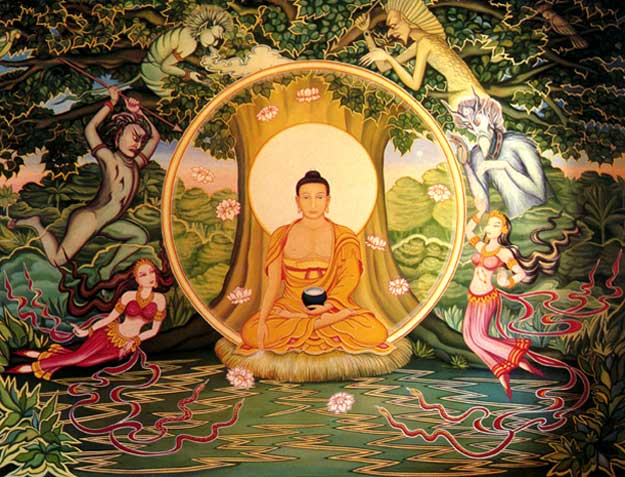I first came under the spell of cuckoo calls 35 years ago, when I was at school in the RIMC in Dehradun. With the onset of late spring-early summer, the loud, piercing calls of a variety of cuckoos resonated through the verdant school campus. Three distinct calls were imprinted in my memory, and especially one of them, my favourite, which had a hypnotic effect on me.
Through my five years in RIMC, April-May was indelibly associated in my memory with these bird calls. But I never spotted the birds.
I knew nothing about birds then (or now). I assumed the “coo-ooh” must be a cuckoo’s call, though I had never seen one. It was only a few years ago that I managed to spot a cuckoo calling, perched high and hidden on a tree. I later learnt that this was the Asian Koel. (Koel, or koyal or kukil are among the Indian names for the bird.)
Here is a picture of the Asian Koel.

Its call can be heard here.
Many years after passing out from the school, I began revisiting RIMC. And each time I partook of the bird calls. I tried my best to spot the particular bird whose call enthralled me, but it was always too high up on a tall tree, and never visible.
Last week I was at the RIMC again, to attend the centenary celebrations of Hugh Catchpole, a former Master and Principal of the school. (Pictures from the Catchpole centenary celebrations are accessible here.) Almost immediately after I reached the school, I heard my favourite bird call. And following the sound, my son Rishiraj and I spotted the bird, in silhouette, perched at the very top of a tree. So now I had a clue and could try to find out what bird it was.
And thus did I come to know that this was the Indian Cuckoo.
Here is a picture.

Its call can be heard here.
The bird is known locally in Uttarakhand as "Ka Phal Pa-kyo", based on its four-syllable note, which announces that the wild Ka fruit (a fig) is ripe. The same bird is known as “Bau-Kotha-Kou Pakhi” in Bangladesh and West Bengal. (The Bengali song "Ei udaashi haowaay pothey pothey mukulguli jhorey" by Rabindranath Tagore, refers to the cukoo's call by this name. See song no. 223 here.) Again, based on its call, which is here interpreted as the anguished cry of a bereaved husband, asking his still wife to say something.
And I learnt about the Common Hawk Cuckoo, also known as the Brainfever bird (for its call).
Here is a picture.

Its call can be heard here.
So it was a culmination of sorts for me, at the very site of the beginning.
Meanwhile, I had of course started this blog, with its title inspired by the Buddhist tale, The Prince who became a Cuckoo. That was a spur-of-the-moment decision. But it is most apt. I can’t have enough of cuckoos’ calls, and especially that of the Indian Cuckoo.
Through my five years in RIMC, April-May was indelibly associated in my memory with these bird calls. But I never spotted the birds.
I knew nothing about birds then (or now). I assumed the “coo-ooh” must be a cuckoo’s call, though I had never seen one. It was only a few years ago that I managed to spot a cuckoo calling, perched high and hidden on a tree. I later learnt that this was the Asian Koel. (Koel, or koyal or kukil are among the Indian names for the bird.)
Here is a picture of the Asian Koel.

Its call can be heard here.
Many years after passing out from the school, I began revisiting RIMC. And each time I partook of the bird calls. I tried my best to spot the particular bird whose call enthralled me, but it was always too high up on a tall tree, and never visible.
Last week I was at the RIMC again, to attend the centenary celebrations of Hugh Catchpole, a former Master and Principal of the school. (Pictures from the Catchpole centenary celebrations are accessible here.) Almost immediately after I reached the school, I heard my favourite bird call. And following the sound, my son Rishiraj and I spotted the bird, in silhouette, perched at the very top of a tree. So now I had a clue and could try to find out what bird it was.
And thus did I come to know that this was the Indian Cuckoo.
Here is a picture.

Its call can be heard here.
The bird is known locally in Uttarakhand as "Ka Phal Pa-kyo", based on its four-syllable note, which announces that the wild Ka fruit (a fig) is ripe. The same bird is known as “Bau-Kotha-Kou Pakhi” in Bangladesh and West Bengal. (The Bengali song "Ei udaashi haowaay pothey pothey mukulguli jhorey" by Rabindranath Tagore, refers to the cukoo's call by this name. See song no. 223 here.) Again, based on its call, which is here interpreted as the anguished cry of a bereaved husband, asking his still wife to say something.
And I learnt about the Common Hawk Cuckoo, also known as the Brainfever bird (for its call).
Here is a picture.

Its call can be heard here.
So it was a culmination of sorts for me, at the very site of the beginning.
Meanwhile, I had of course started this blog, with its title inspired by the Buddhist tale, The Prince who became a Cuckoo. That was a spur-of-the-moment decision. But it is most apt. I can’t have enough of cuckoos’ calls, and especially that of the Indian Cuckoo.








